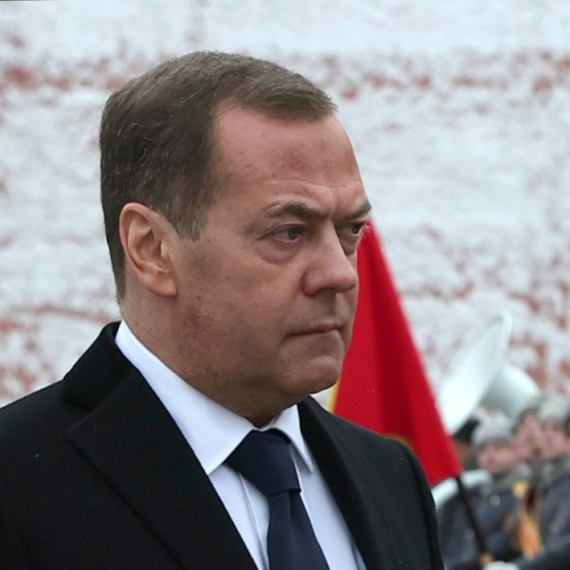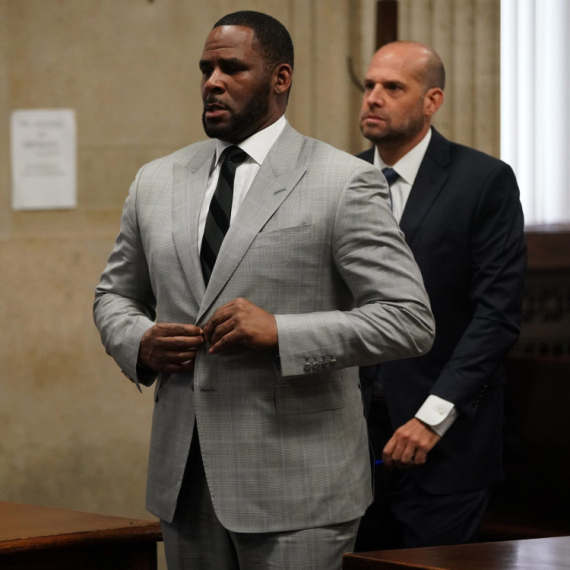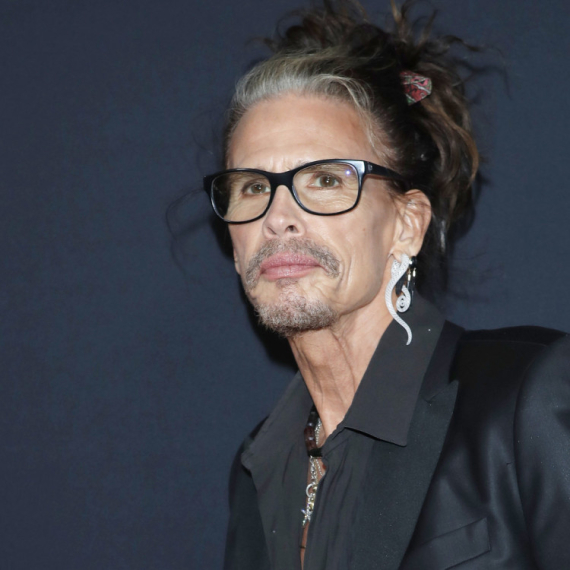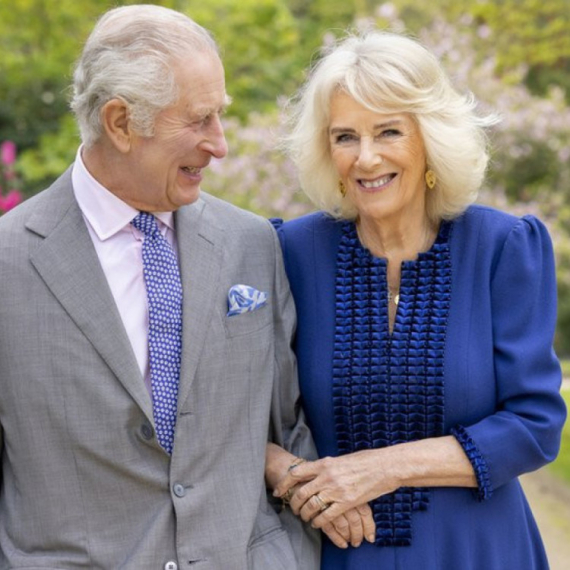“Seize moment” Brown to urge U.S.
Gordon Brown will urge the U.S. to "seize the moment" to "make the future work for us" when he addresses a joint session of the U.S. Congress.
Wednesday, 04.03.2009.
10:45

Gordon Brown will urge the U.S. to "seize the moment" to "make the future work for us" when he addresses a joint session of the U.S. Congress. Brown, the fifth UK prime minister to address both houses on Capitol Hill, is set to issue a plea to the U.S. to avoid protectionism. “Seize moment” Brown to urge U.S. The speech comes as the PM faces media pressure to apologize for the economy. In a BBC interview he declined to do so, but said "humility" and "collective responsibility" were always needed. He said: "The idea ... that somehow this is a British problem that was a British government mistake, actually what happened is that round the world, as everybody understands, the whole global financial system seized up." Sub prime mortgages He said he was not sure any British regulatory system could have picked up some of the problems because they were coming out of many different countries. "We should have been tougher in some areas but we have got to remember, of course, that when it comes to the sub prime mortgages which ended up in the ownership of British banks, that's something that happened in America. The risk was also passed on but they were rated as triple A products," he said. He said many of the problems could not have been solved without international supervision that he said he had been pressing for, for a decade. When pressed about his role in the UK's economic crisis, Brown said: "I think there is always a need for humility and there's always a need to accept collective responsibility... "I don't think I would run away from responsibility for what happens." He was responding to comments first made by Chancellor Alistair Darling, suggesting the government should show "humility" and accept "collective responsibility" for the crisis. Global challenges And the prime minister's close ally Ed Balls said, of the regulatory system, "in retrospect, it is clear we were nowhere near tough enough". The BBC says Brown was in an awkward position as there was some pressure in the cabinet for him to apologize - as well as from opposition politicians. When he addresses Congress, Brown will follow in the footsteps of Winston Churchill, Clement Attlee, Margaret Thatcher and Tony Blair. He is expected to compare the battle against recession to the fight against fascism in the 1940s. He is expected to focus on the challenges facing the global economy, reiterating calls for a strong UK-U.S. relationship and to talk about the military situation in Afghanistan. In the speech he will tell Congress that "now more than ever the rest of the world wants to work with you" and will say the major challenges faced are global challenges. "And let me say that you now have the most pro-American European leadership in living memory. A leadership that wants to cooperate more closely together, in order to be a stronger partner for you. There is no old Europe, no new Europe, there is only your friend Europe. "So once again I say we should seize the moment - because never before have I seen a world so willing to come together. Never before has that been more needed," he will say. After a meeting with Barack Obama on Tuesday, the U.S. president said the "special relationship" between the countries would "only grow stronger". After about an hour of talks at the White House, Brown and Obama said they agreed that improvements were needed to the regulation of the global banking system. Obama warned that countries should not "project inwards" by encouraging protectionism during the economic crisis. Brown said the two countries were pursuing a "common interest" in a "global new deal". The prime minister's U.S. visit comes ahead of a summit of the Group of 20 (G20) developed and emerging economies in London on April 2. The EU and Canada have warned that a "buy American" clause in the U.S. economic recovery package could promote protectionism. It seeks to ensure that only U.S. iron, steel and manufactured goods are used in construction work funded by the bill - but has included a pledge to respect international trade obligations.
“Seize moment” Brown to urge U.S.
The speech comes as the PM faces media pressure to apologize for the economy.In a BBC interview he declined to do so, but said "humility" and "collective responsibility" were always needed.
He said: "The idea ... that somehow this is a British problem that was a British government mistake, actually what happened is that round the world, as everybody understands, the whole global financial system seized up."
Sub prime mortgages
He said he was not sure any British regulatory system could have picked up some of the problems because they were coming out of many different countries."We should have been tougher in some areas but we have got to remember, of course, that when it comes to the sub prime mortgages which ended up in the ownership of British banks, that's something that happened in America. The risk was also passed on but they were rated as triple A products," he said.
He said many of the problems could not have been solved without international supervision that he said he had been pressing for, for a decade.
When pressed about his role in the UK's economic crisis, Brown said: "I think there is always a need for humility and there's always a need to accept collective responsibility...
"I don't think I would run away from responsibility for what happens."
He was responding to comments first made by Chancellor Alistair Darling, suggesting the government should show "humility" and accept "collective responsibility" for the crisis.
Global challenges
And the prime minister's close ally Ed Balls said, of the regulatory system, "in retrospect, it is clear we were nowhere near tough enough".The BBC says Brown was in an awkward position as there was some pressure in the cabinet for him to apologize - as well as from opposition politicians.
When he addresses Congress, Brown will follow in the footsteps of Winston Churchill, Clement Attlee, Margaret Thatcher and Tony Blair.
He is expected to compare the battle against recession to the fight against fascism in the 1940s.
He is expected to focus on the challenges facing the global economy, reiterating calls for a strong UK-U.S. relationship and to talk about the military situation in Afghanistan.
In the speech he will tell Congress that "now more than ever the rest of the world wants to work with you" and will say the major challenges faced are global challenges.
"And let me say that you now have the most pro-American European leadership in living memory. A leadership that wants to cooperate more closely together, in order to be a stronger partner for you. There is no old Europe, no new Europe, there is only your friend Europe.
"So once again I say we should seize the moment - because never before have I seen a world so willing to come together. Never before has that been more needed," he will say.
After a meeting with Barack Obama on Tuesday, the U.S. president said the "special relationship" between the countries would "only grow stronger".
After about an hour of talks at the White House, Brown and Obama said they agreed that improvements were needed to the regulation of the global banking system.
Obama warned that countries should not "project inwards" by encouraging protectionism during the economic crisis.
Brown said the two countries were pursuing a "common interest" in a "global new deal".
The prime minister's U.S. visit comes ahead of a summit of the Group of 20 (G20) developed and emerging economies in London on April 2.
The EU and Canada have warned that a "buy American" clause in the U.S. economic recovery package could promote protectionism.
It seeks to ensure that only U.S. iron, steel and manufactured goods are used in construction work funded by the bill - but has included a pledge to respect international trade obligations.

























































Komentari 2
Pogledaj komentare